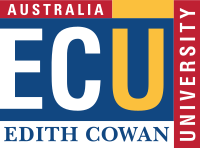About Bachelor Of Engineering (chemical) Honours in Edith Cowan University (ECU)
The chemical engineering discipline is principally concerned with the application of knowledge of how materials and chemicals interact, or can be converted in some way to a more useful form, as part of a processing, production or refining process.
Chemical engineers work in a wide range of domains from mineral processing, mining, and oil and gas through to industries associated with clothing, food, packaging, fertilisers, pharmaceuticals and many other manufacturing and biological processes.
The program focuses on the development of knowledge and skills relevant to professional engineering practice and along with a sound theoretical base, includes strong elements of practical problem solving, team work and project development. As a result, graduates will gain strong analytical skills, and have the ability to lead complex projects as well as having multiple technical and transferable skill competencies.
The course provides a sound basis in mechanics, mathematics, and the principles of engineering design in the first two years of study, along with core areas of engineering science including chemistry and materials science, fluid mechanics, process systems and thermodynamics. In the final two years of study, a range of more specialist chemical engineering topics are covered including process design, operations and control, to prepare students to enter their chosen profession with relevant knowledge and skills.
The first year of this course includes a set of eight units that are common across all engineering honours courses. This allows students the opportunity to develop a better understanding of the various engineering disciplines on offer and the flexibility, if desired, to switch to another engineering discipline/course without penalty after the first year of study.
Class 12th: 65%
- Applicants must have standard Secondary Certificate or equivalent with 65% marks
- Applicants are required to have Mathematics and Physics
Edith Cowan University Highlights
| Type |
Public |
| Campus setting |
Urban |
| Establishment Year |
1991 |
| Annual Endowment |
485.2 Million AUD |
| Academic staff |
814 |
| Total students (on-campus) |
23,514 |
| International students (on-campus) |
5,714 |
Edith Cowan University Average Tuition Fees And Other Expenses
The students planning to enroll at the university are encouraged to prepare an overall budget for international students looking to study in Australia. Amount of tuition fees of every course in ECU varies and can be checked with the help of the Fee Calculator.
| Expenses |
Amount |
| Tuition |
14,450 – 20,025 AUD per semester |
| Housing fee |
205 AUD per week |
| Transportation |
33 AUD per week |
| Meals |
203 AUD per week |
| Personal expenses |
132 AUD per week |
Edith Cowan University English Language Requirements for International Students
International students who want to apply to Edith Cowan University are required to demonstrate their proficiency in English by fulfilling either one of the criteria as mentioned below:
| Test |
Minimum Score Required for Undergraduate |
Minimum Score Required for Graduate |
| IELTS |
6.0 (All individual bands minimum 6.0) |
6.5 (All individual bands minimum 6.0) |
| TOEFL |
Paper based: 550 (Written English: 5)
Internet based: 70 (Individual scores minimum 17) |
Paper based: 573 (Test of written English - 5)
Internet based: 84 (Individual scores minimum 17) |
| PTE |
52 |
58 |
| University of Cambridge |
169 (No individual band less than 169) |
176 (No individual band less than 169) |
Edith Cowan University Application Process
Application portal: Online
Application fee: No fees
Admission deadline: July 10, 2020 (for both UG and PG courses)
Supporting documents:
- English language proficiency (ATAR English and Literature, Minimum Grade C in English)
- Senior High school report
- Academic transcript
- Work experience
- Resume
- English language proficiency
- Interview
- Reference
English language proficiency (TOEFL PBT – 550, TOEFL iBT - 70, IELTS – 6.0, PTE – 52, WAUFP – 50% + pass)
